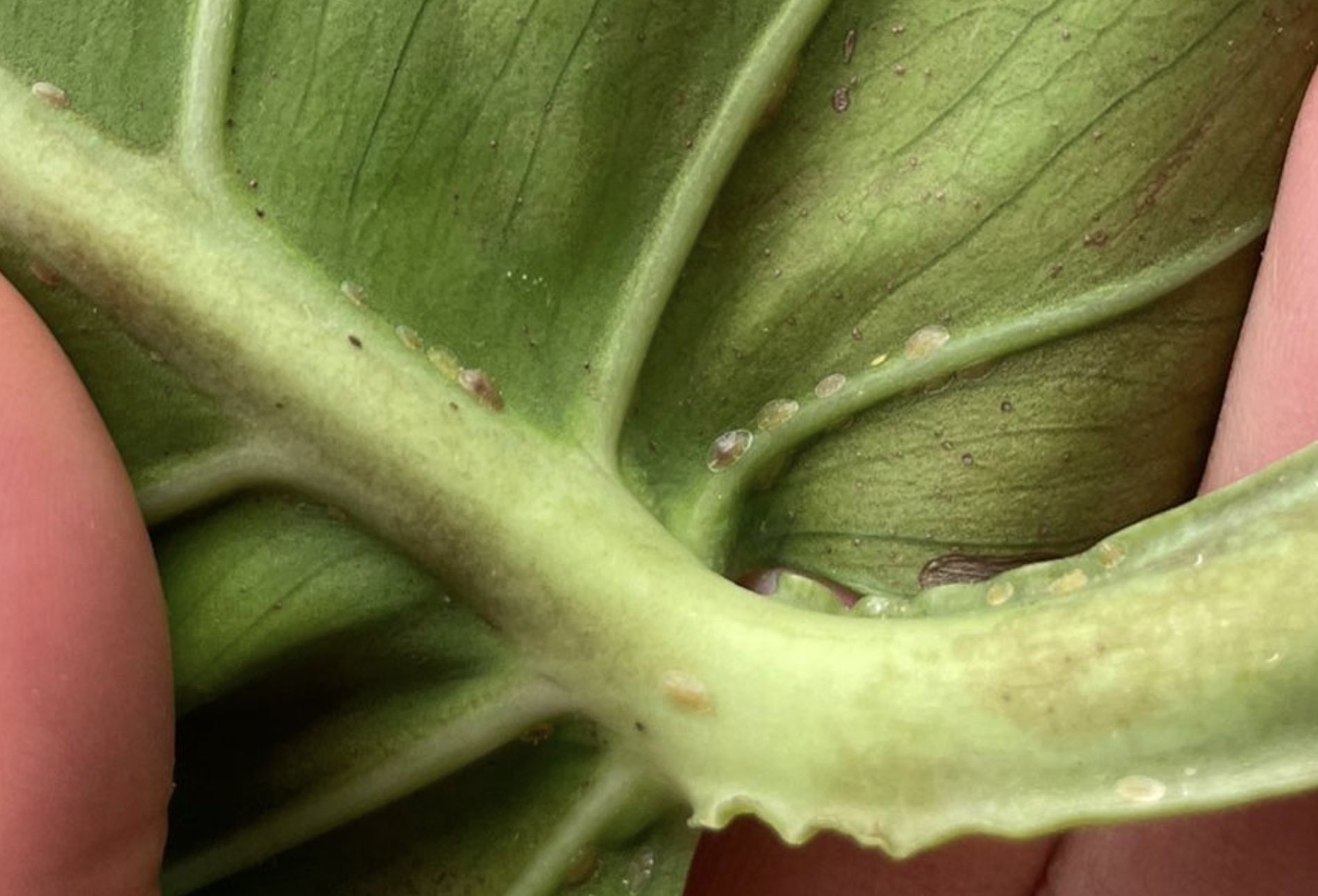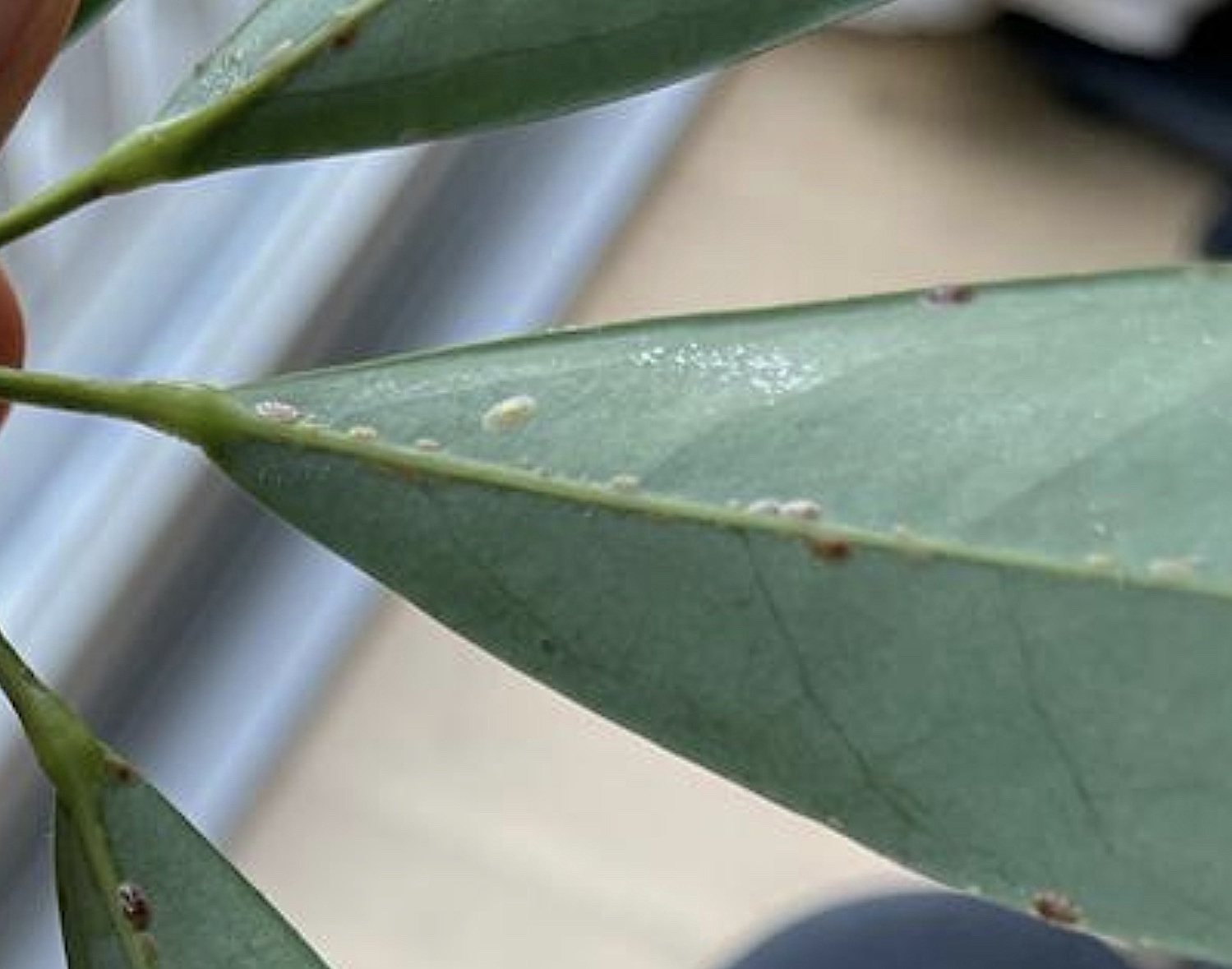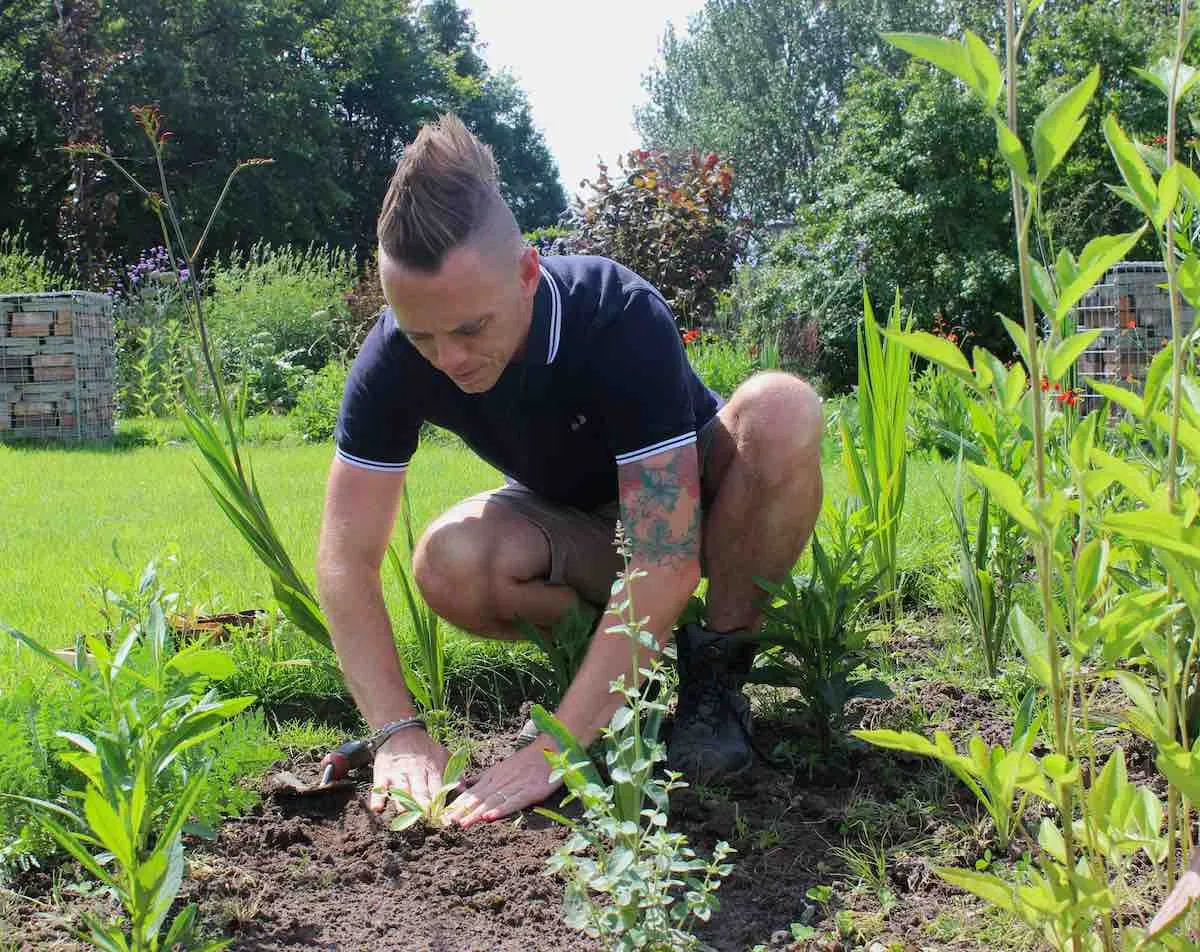Hi @acc723
Thanks for your question about what the white or brown spots are under your house plant.
These are actually scale insects that feed off house plants. So let's take a closer look at scale insects and their impact on house plants.
What are scale pests?
Scale pests, also known as scale insects, are common pests that infest house plants and many other types of plants. They belong to the insect order Hemiptera and the family Coccoidea. Scale insects are named for the protective scale-like covering they develop on their bodies, which helps protect them from predators and environmental factors.

How to identify scale insects?
Scale insects or pests can be identified as small, oval or round-shaped insects that attach themselves to the stems, leaves, and sometimes the fruits of plants. Scale insects come in a variety of colours, including brown, black, white, yellow, and even pink or red, depending on the species.
How do scale insects damage plants?
These insects feed by piercing the plant tissue with their mouthparts and extracting sap, which weakens the plant and can lead to stunted growth, yellowing of leaves, leaf drop, and the overall decline in plant health. As they feed, they secrete a sticky substance called honeydew, which can attract other pests like ants and promote the growth of sooty mould.
How quickly do scale insects reproduce?
Scale insects can reproduce rapidly, and infestations can quickly spread to other plants if left untreated. They can be particularly troublesome for indoor plants since the controlled environment indoors can provide favourable conditions for their development. They can spread from house plant to house plant and suddenly infect your entire plant catalogue if you are not careful!
How to get rid of scale pests?
Controlling scale pests typically involves a combination of manual removal and chemical or biological treatments.
Manual removal involves physically scraping off the scales from the plant using a soft brush or cloth.

Insecticidal soaps, horticultural oils, or insecticides specifically formulated for scale insects can also be used to control infestations. Mixing 1/10 washing up liquid and water to then spray on them can help seal the scales causing them to die. But spray with care and avoid the full sun after spraying the leaves as the mixture can burn or discolour the leaves. Neem oil is also an excellent natural deterrent and treatment for scale insects.
Beneficial insects, such as ladybugs or predatory beetles, can be introduced to help control scale populations naturally but this is more suitable for outdoor plants and shrubs.
How to prevent scale insects on house plants
Regular inspection of plants, maintaining good plant health, and proper sanitation practices, such as removing and destroying heavily infested plant parts, can help prevent and manage scale pest infestations in house plants.
If I were you, I'd manually clean these off with a cloth with washing up liquid on, then consider neem oil as a post-clean treatment.
Keep your eyes on it to see if it continues but a full deep cleanse should help!
Happy gardening
Lee
Hi @acc723
Thanks for your question about what the white or brown spots are under your house plant.
These are actually scale insects that feed off house plants. So let's take a closer look at scale insects and their impact on house plants.
What are scale pests?
Scale pests, also known as scale insects, are common pests that infest house plants and many other types of plants. They belong to the insect order Hemiptera and the family Coccoidea. Scale insects are named for the protective scale-like covering they develop on their bodies, which helps protect them from predators and environmental factors.

How to identify scale insects?
Scale insects or pests can be identified as small, oval or round-shaped insects that attach themselves to the stems, leaves, and sometimes the fruits of plants. Scale insects come in a variety of colours, including brown, black, white, yellow, and even pink or red, depending on the species.
How do scale insects damage plants?
These insects feed by piercing the plant tissue with their mouthparts and extracting sap, which weakens the plant and can lead to stunted growth, yellowing of leaves, leaf drop, and the overall decline in plant health. As they feed, they secrete a sticky substance called honeydew, which can attract other pests like ants and promote the growth of sooty mould.
How quickly do scale insects reproduce?
Scale insects can reproduce rapidly, and infestations can quickly spread to other plants if left untreated. They can be particularly troublesome for indoor plants since the controlled environment indoors can provide favourable conditions for their development. They can spread from house plant to house plant and suddenly infect your entire plant catalogue if you are not careful!
How to get rid of scale pests?
Controlling scale pests typically involves a combination of manual removal and chemical or biological treatments.
Manual removal involves physically scraping off the scales from the plant using a soft brush or cloth.

Insecticidal soaps, horticultural oils, or insecticides specifically formulated for scale insects can also be used to control infestations. Mixing 1/10 washing up liquid and water to then spray on them can help seal the scales causing them to die. But spray with care and avoid the full sun after spraying the leaves as the mixture can burn or discolour the leaves. Neem oil is also an excellent natural deterrent and treatment for scale insects.
Beneficial insects, such as ladybugs or predatory beetles, can be introduced to help control scale populations naturally but this is more suitable for outdoor plants and shrubs.
How to prevent scale insects on house plants
Regular inspection of plants, maintaining good plant health, and proper sanitation practices, such as removing and destroying heavily infested plant parts, can help prevent and manage scale pest infestations in house plants.
If I were you, I'd manually clean these off with a cloth with washing up liquid on, then consider neem oil as a post-clean treatment.
Keep your eyes on it to see if it continues but a full deep cleanse should help!
Happy gardening
Lee
 Lee Burkhill: Award Winning Designer & BBC 1's Garden Rescue Presenters Official Blog
Lee Burkhill: Award Winning Designer & BBC 1's Garden Rescue Presenters Official Blog



